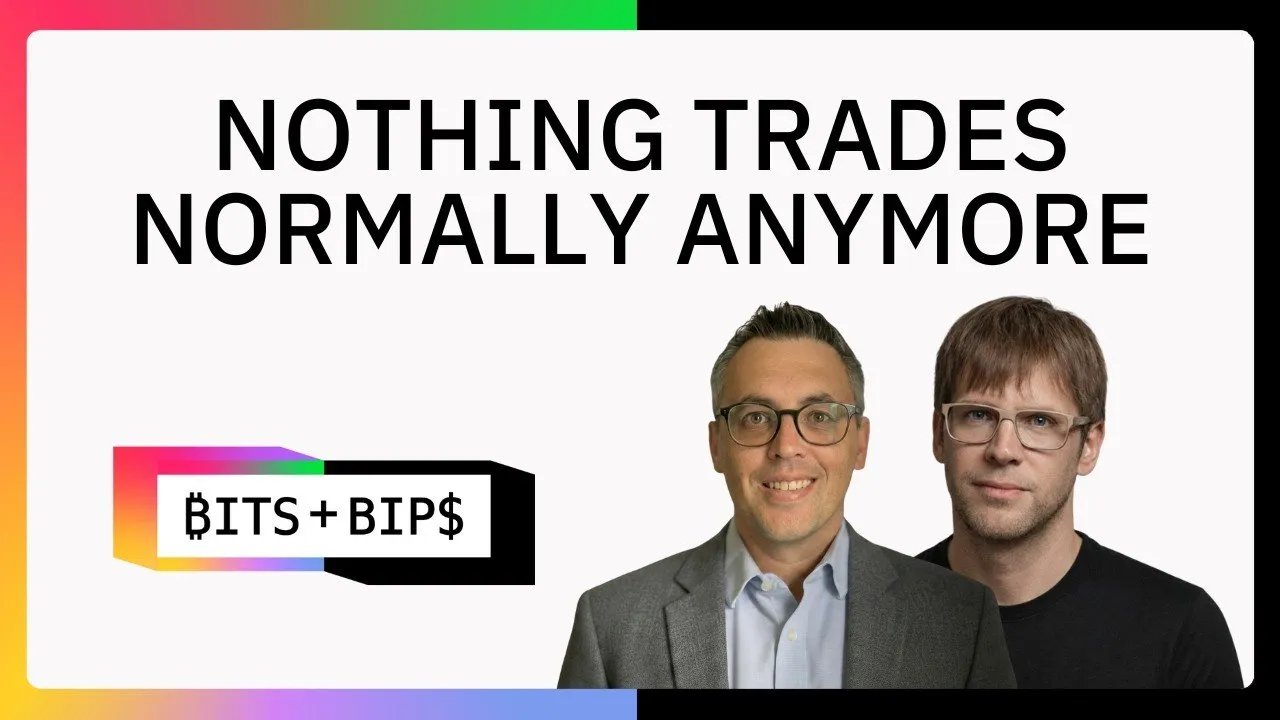Table of Contents
Y Combinator partners reveal why most founders fail at validation, the psychology behind pivot paralysis, and how to build genuine conviction in your startup ideas through rigorous execution.
Learn why high-conviction founders with average skills outperform brilliant founders who can't commit, plus the dangerous myths that cause smart people to make terrible startup decisions.
Key Takeaways
- Contacting 25 potential customers over two weeks and pivoting when none respond represents dangerously low-effort validation that teaches nothing meaningful
- High conviction doesn't mean religious belief—it means not getting blown off course by every piece of negative feedback or investor rejection
- Fear causes intelligent founders to abandon rigorous thinking, leading them to base major decisions on anonymous internet advice and false assumptions
- The "random walk" pattern of constant pivoting without forward progress leaves founders exhausted after 1.5-2 years with no valuable learning to show
- Minimum Viable Products must actually be viable—if you won't use your own product, it's unrealistic to expect strangers to adopt it
- High-conviction founders with average technical skills consistently outperform brilliant founders who constantly second-guess their direction and pivot frequently
- Former employees trying to become founders often default to consulting mindsets, seeking to solve other people's problems rather than their own
- The most dangerous validation comes from superficial methods like LinkedIn spam campaigns that feel productive but provide no meaningful market insight
Timeline Overview
- 00:00–00:16 — Coming Up: Preview of discussion on founder conviction, validation pitfalls, and building confidence in startup ideas
- 00:16–00:26 — Intro: How Fast Is Too Fast?: Introduction to the core question of optimal startup iteration speed and decision-making
- 00:26–02:10 — Rigorous Thinking: Story of YC company that contacted 25 prospects in two weeks, got no responses, and immediately decided to pivot
- 02:10–03:26 — Superficial Validation: Why LinkedIn spam campaigns and cold outreach provide false validation signals that mislead founders
- 03:26–04:09 — Solving Problems: How big company backgrounds create consulting mindsets that prevent founders from solving their own problems
- 04:09–05:52 — High Quality Reps: The concept of completing full validation cycles and what constitutes meaningful learning from startup experiments
- 05:52–06:57 — Best Qualities: Why high conviction beats technical skills, sales ability, and fundraising prowess in determining founder success
- 06:57–08:26 — Conviction: Definition of conviction as resistance to being blown off course rather than religious belief in ideas
- 08:26–12:52 — Fear: How fear corrupts rational thinking, leading founders to base decisions on false assumptions and anonymous internet advice
- 12:52–13:33 — YC Standard Deal: How financial runway eliminates artificial pressure and allows founders to focus on building conviction
- 13:33–14:01 — "Pivotitis": The difference between informed pivots based on learning versus random directional changes without progress
- 14:01–16:11 — Random Walk: Mathematical metaphor for directionless pivoting that prevents any meaningful progress toward product-market fit
- 16:11–19:40 — A Useless MVP: Why products that founders won't use themselves cannot qualify as Minimum Viable Products
- 19:40–END — Learn A Good Rep: Exercise metaphor emphasizing proper form and meaningful practice over superficial activity
The Anatomy of Low-Effort Validation
- The prototypical failed validation story involves contacting 25 potential customers over two weeks, receiving no positive responses, and immediately deciding to pivot
- This approach represents such minimal effort that it generates no meaningful learning about market needs, customer behavior, or product positioning
- Founders often target other startups for validation because they perceive them as easier to sell to, despite startups rarely being the actual target market
- The instinct to seek validation from startup founders reflects misplaced confidence that startup problems are universally shared or easier to solve
- LinkedIn spam campaigns and mass cold email outreach create the illusion of market research while providing no substantive customer insight
- These superficial validation attempts often replace genuine customer development work that requires sustained effort and deeper relationship building
The fundamental flaw lies in treating validation as a checkbox exercise rather than a learning process that requires sustained engagement and multiple meaningful interactions with potential customers.
The Corporate Mindset Trap
- Former product managers and engineers from large companies often struggle with first customer acquisition because their training emphasizes research over selling
- User research methodologies teach founders to interview people about their problems rather than attempt to sell actual solutions to real pain points
- Big company employees typically solve other people's problems rather than their own, creating a consulting instinct when starting companies
- This background leads founders to believe they need extensive market research before building, mirroring corporate product development processes
- The resulting approach resembles what employee 10,000 did at a big company rather than what employee one (the founder) originally did to create the business
- Corporate-trained founders often lack the conviction that comes from solving personally experienced problems, making them more susceptible to external opinions
The transition from employee to founder requires abandoning systematic research approaches in favor of direct problem-solving for specific customers willing to pay.
Building Conviction Through Complete Cycles
- High-quality validation requires completing full experimental cycles rather than abandoning efforts at the first sign of resistance or difficulty
- The metaphor of exercise repetitions applies: proper form and complete range of motion are essential for building strength and learning
- Incomplete validation cycles—like building a product, sending a few emails, and pivoting—provide no useful information about market viability or customer needs
- Conviction building requires convincing yourself that the customer problem is worth solving and that you genuinely want to help these specific people
- Many founders want to skip the customer understanding phase and jump directly to product building and revenue generation without establishing market foundation
- The most important customer is yourself—you must be convinced that spending more time on this specific problem represents time well spent
Conviction emerges from deep customer understanding combined with genuine belief that the problem deserves sustained attention and creative solution development.
The Psychology of High-Conviction Founders
- High conviction doesn't mean religious belief in ideas but rather resistance to being blown off course by every piece of negative feedback
- Founders who pivot after difficult fundraising conversations by definition lack sufficient conviction in their original direction and problem selection
- The trait manifests as ability to maintain focus despite external pressure, investor skepticism, and initial customer rejection or indifference
- Historical analysis reveals that most successful companies faced significant investor skepticism during early stages, making rejection a neutral rather than negative signal
- High-conviction founders continue iterating on solutions while maintaining consistent focus on the same customer problem and market opportunity
- The skill can be developed through practice, as demonstrated by founders who evolve from needing basic management coaching to fighting regulatory battles successfully
Conviction represents meta-skill development that enables sustained problem-solving focus despite inevitable setbacks and external skepticism.
Fear-Driven Decision Making
- Fear corrupts rational thinking, causing intelligent founders to make poor decisions they would ridicule if made by employees or colleagues
- Founders frequently base major strategic decisions on anonymous internet advice, treating random comments as authoritative guidance for company direction
- False assumptions about competitor progress or industry standards create artificial pressure that leads to premature pivoting and poor strategic choices
- The YC batch environment sometimes amplifies comparison anxiety, with founders assuming other companies have achieved more progress based on limited information
- Alumni advice taken out of context creates unrealistic expectations, such as believing specific revenue thresholds are required for successful fundraising
- Fear prevents founders from applying the same analytical rigor they would use in professional settings to evaluate startup decisions and strategic direction
The antidote involves systematic fact-checking of assumptions and applying professional-level analytical thinking to startup decision-making processes.
Random Walk vs. Directional Progress
- The random walk mathematical concept describes movement where each step's direction is determined randomly, resulting in no net progress toward any destination
- Startup random walks involve changing direction after every small piece of feedback without building cumulative knowledge or sustainable forward momentum
- This pattern typically exhausts founders within 1.5-2 years while providing no valuable learning or market insight that justifies the time investment
- Contrast with directional pivots that maintain forward progress by building on accumulated knowledge and maintaining some consistent element across iterations
- Random walk founders often struggle to articulate what they learned during their startup experience beyond general observations about difficulty
- The approach creates negative associations with entrepreneurship since founders feel they wasted time without achieving meaningful progress or personal growth
Effective pivoting requires maintaining some consistent vector while adjusting specific approaches based on customer feedback and market response.
MVP Definition and Self-Use Requirements
- Minimum Viable Product must emphasize "viable"—if no one will use the product, including the founders themselves, it fails basic viability tests
- The most reliable early validation comes from founders who actively use their own products and find genuine value in the experience
- Developer tools provide clear examples: if programming tool creators won't use their own software, external adoption becomes nearly impossible
- Founders often list missing features as reasons they don't use their products, but these excuses reveal fundamental viability problems
- The self-use requirement serves as a natural quality filter, ensuring products provide some genuine value before attempting to sell to strangers
- This approach scales efficiently since founders can iterate quickly based on their own usage patterns and pain points
Self-use creates an authentic foundation for product development that eliminates the gap between what founders claim their product does and what it actually delivers.
The Conviction vs. Skill Trade-off
- High-conviction founders with average programming, sales, and fundraising skills consistently outperform brilliant founders who constantly question their direction
- Every successful startup team requires at least one person with unshakeable conviction who can maintain focus during inevitable difficult periods
- "Too cool for school" teams that maintain distance from their problems and set impossibly high bars typically pivot until they exhaust their resources
- The conviction requirement doesn't eliminate the need for other skills but serves as a prerequisite for applying those skills effectively over time
- Founders with high conviction can develop other necessary skills through sustained practice, while low-conviction founders never maintain focus long enough to improve
- Teams benefit from having multiple skill sets, but conviction provides the foundation that enables skill development and sustained execution
The hierarchical relationship places conviction above technical abilities because it enables the sustained focus required to develop and apply other startup skills.
Financial Runway and Decision Quality
- The YC standard deal provides sufficient runway to eliminate artificial time pressure that forces premature pivoting and poor decision-making
- Financial security allows founders to focus on building genuine conviction rather than optimizing for quick fundraising or immediate revenue generation
- Founders often create artificial urgency around Demo Day funding requirements, leading them to abandon promising directions for more immediately fundable ideas
- The "gun to your head" mentality typically reflects internal pressure rather than external constraints, since adequate runway provides multiple iteration opportunities
- Money cannot solve conviction problems—low-conviction founders will continue pivoting regardless of available resources until they develop focus
- Removing financial pressure reveals whether pivoting stems from genuine market feedback or internal uncertainty and lack of direction
Financial stability creates space for founders to develop conviction through sustained customer engagement rather than rushing toward premature solutions.
Learning Through Proper Form
- The exercise metaphor emphasizes that learning requires proper technique and complete execution rather than superficial effort and incomplete attempts
- Good form in startup validation means conducting thorough customer development, building products people actually use, and maintaining sustained focus on specific problems
- Poor form leads to ineffective learning and potential injury (wasted time, exhausted resources, negative entrepreneurship associations)
- High-quality repetitions compound learning over time, while low-quality attempts provide no cumulative benefit and may reinforce poor habits
- The approach requires patience and discipline since proper form often feels slower initially but produces superior long-term results
- Founders must resist the temptation to rush through validation cycles without extracting maximum learning from each customer interaction and product iteration
Proper entrepreneurial form combines sustained customer focus with rigorous execution and genuine commitment to solving specific problems for defined audiences.
Common Questions
Q: How many customer conversations constitute adequate validation?
A: Quality matters more than quantity—one engaged customer providing detailed feedback teaches more than 25 superficial rejections.
Q: When should founders trust their conviction versus external feedback?
A: High conviction means staying focused on the same problem while remaining flexible about solutions based on customer input.
Q: What's the difference between an MVP and a prototype?
A: An MVP must be viable enough that at least the founders use it regularly and find genuine value.
Q: How can former corporate employees develop founder conviction?
A: Focus on solving personal problems rather than conducting market research, and commit to specific customer segments.
Q: What financial runway do founders need to build conviction?
A: Enough to sustain 1.5-2 years of focused iteration without external funding pressure forcing premature decisions.
Conclusion: The Conviction Imperative
Building unshakeable founder conviction represents the foundational skill that enables all other startup capabilities. Without conviction, even brilliant technical execution, sophisticated sales processes, and successful fundraising become meaningless as founders abandon promising directions at the first sign of difficulty.
The path to conviction requires abandoning corporate-trained instincts toward extensive research and committee-based decision-making in favor of direct problem-solving for specific customers. This transformation demands confronting the fear-based thinking that causes intelligent people to make poor startup decisions and base major strategic choices on superficial validation and anonymous internet advice.
The stakes extend beyond individual company success to personal fulfillment and professional development. Founders who complete high-quality validation cycles build valuable skills and market knowledge regardless of ultimate company outcomes, while those who engage in random walk behavior exhaust themselves without meaningful learning or growth.
Practical Implications for Founders
Establish Self-Use Standards: Before attempting to sell any product, ensure you use it regularly and derive genuine value. This creates an authentic foundation for customer conversations and product development priorities.
Complete Full Validation Cycles: Resist the urge to pivot after superficial market feedback. Sustained customer engagement over months, not weeks, provides the depth of understanding necessary for informed strategic decisions.
Identify Your Conviction Source: Understand whether your problem selection stems from personal experience or market research. Personal problems provide stronger conviction foundations than intellectually interesting opportunities.
Audit Your Fear-Based Assumptions: Regularly fact-check beliefs about competitor progress, industry standards, and fundraising requirements. Most founder fears are based on incomplete information and anonymous advice.
Choose Quality Over Quantity in Validation: Twenty-five superficial customer conversations provide less value than five deep relationships with engaged prospects willing to provide ongoing feedback.
Maintain Directional Consistency: Allow solution approaches to evolve while maintaining focus on the same customer problem and market opportunity. Avoid random walk patterns that eliminate cumulative learning.
The conviction to persist through inevitable startup challenges cannot be outsourced or delegated—it must be built through sustained engagement with real customer problems and genuine commitment to creating valuable solutions.





![This New Bitget Platform Changes the Game [Literally Gold]](/content/images/size/w1304/format/webp/2026/02/bitget-launches-universal-exchange-gold-usdt.jpg)